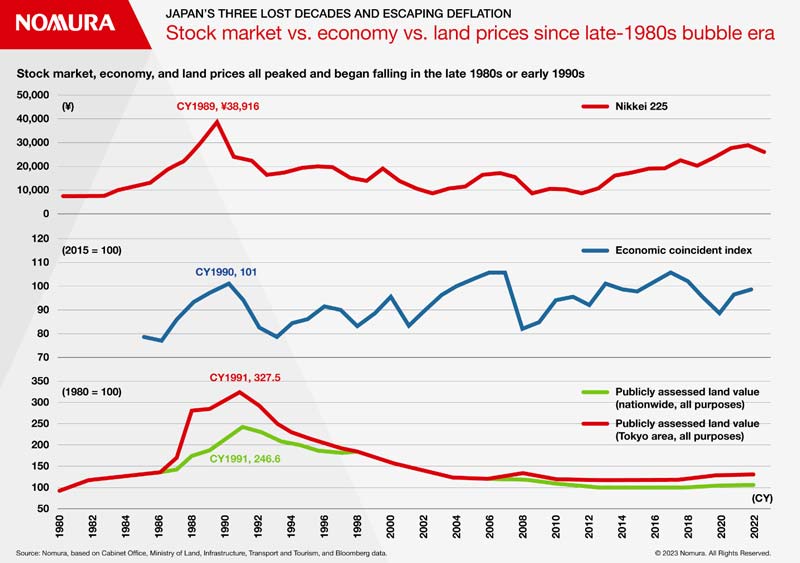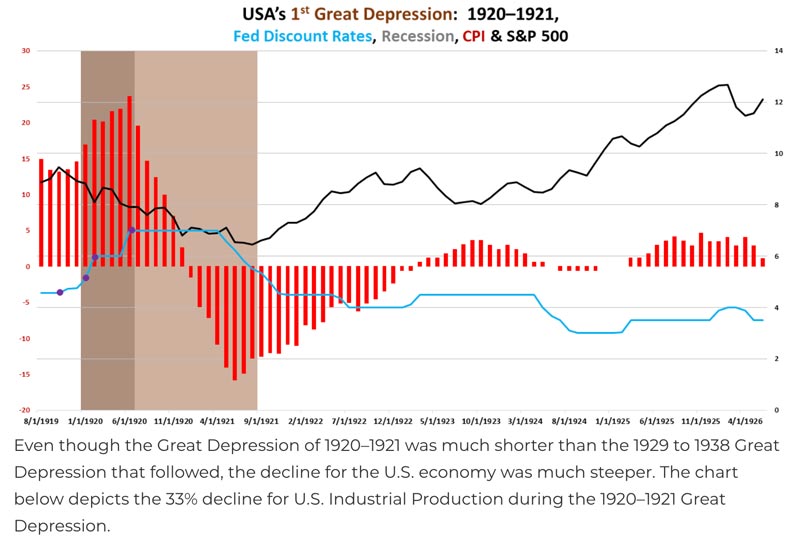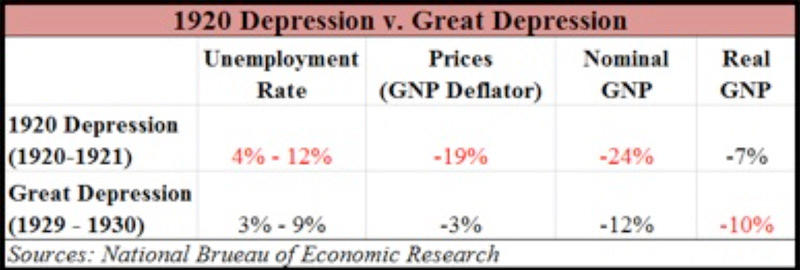One of the more sobering thoughts at the moment is that, as bad as things are, we haven't even hit the full recession yet. And when it comes, Washington's playbook could deliver a Japan-style zombie economy for decades to come.
So despite evaporating jobs, soaring bankruptcies, houses reserved for the six-figure crowd, and grocery prices that make breakfast a luxury, we haven't even seen the main show.

The Recession Playbook
When the recession hits full-on we know exactly what will happen. Because the modern government recession playbook has become set in stone: A set of suicidal policies that will make the recovery as slow — and as feeble — as possible. While draining the blood from the economy, potentially delivering decades of stagnation.
The standard recession story goes like this: When central bank interest rate manipulation crashes the economy, it sends unemployment soaring into the millions and it fills food kitchens across America. This understandably leads to deafening calls for action: For the government to do something, anything, to ease the pain.
A cynic might actually think it's intentional – make the pain bad enough and people will beg to be commanded.
At that point the crisis industrial complex swings into action.
First up is scapegoating, pretending the recession came out of the blue or — if nobody believes that — grabbing any headline they can find to crash-splain how it was the supply chains, or too much online shopping, or greedy grocery stores, or the classic "speculators."
Alas, the scapegoating is just setting the stage. Because instead of getting out of the way and letting the economy recover — greedy grocers and all — governments lunge for those calls to “do something” like a cokehead at a White House party.
And, ever since the Great Depression, “do something” has meant two things: First, cut interest rates as fast as possible, preferably forever. Second, expand federal spending as much as humanly possible.
The problem is that both of these actually hurt the recovery. In fact, do them enough and you stop the recovery altogether.
To see why, consider why the recession is happening in the first place: because money was too cheap for too long, funding a bunch of crappy businesses, called “malinvestments.” When the Fed raised rates, those malinvestments started liquidating. And when they liquidate in a cluster we call it a recession.
At which point the correct thing to do is accelerate the liquidation. To kill off the zombie malinvestments fast and free up resources for a new crop of healthy companies.
This means the Fed's playbook of free money actually gets in the way of recovery. It throws a lifeline to the malinvestments and their billionaire founders. Letting them keep hogging trillions in resources courtesy of cheap loans.
Meanwhile, government spending piles on, hogging yet more trillions of dollars and the resources it buys to hog yet more from the productive sector. Say, to rebuild racist overpasses using construction workers and steel that could have been building a factory.
In short, the productive economy was whipsawed during the boom-bust, and now in the recession it's starved.
Incidentally, this is exactly what Japan has been doing for 30 years now. Essentially running the recession playbook all the time, with sky-high government spending paired with near-zero interest rates.
This has given the long-suffering Japanese people 30 years of zombie economics as the economy crawls along while the country racks up a comical 1.3 quadrillion yen of public debt. That's roughly 264% of GDP, equivalent to $62 trillion in US terms.

The Forgotten Depression
This recession strangle is about to become highly topical, and there's a great 2014 book by Jim Grant on the “Forgotten Depression” of 1921 that walks it through.
1921 is interesting because it's the last time the US government actually fixed a recession the old fashioned way – by accelerating it, not by stopping it. Giving, as Grant puts it, "the last government-unmedicated recession."
In 1921 Washington actually cut government spending and raised rates – the exact opposite of what they do today. The idea was to quickly purge the bad apples — the malinvestments — while reducing government's take so resources and staff are freed up for the recovery.
And that's exactly what happened: After a crash that was by many measures worse than the Great Depression – including the worst deflation in 140 years – within a year the US economy came roaring back. Ushering in a decade of growth we now call the “Roaring 20's.”

Contrast all this with the 2008 crisis. Which was nowhere near the Great Depression, yet it took almost 4 years to regain the pre-crash level. Followed by anemic growth for almost a decade until Donald Trump finally cut taxes and got businesses producing again. If not for Trump, we too could have been looking at a few Japan-style lost decades.
While we didn't get 30 lost years — Trump interrupted that with lower taxes — we certainly did get Japan's zombie-style debt: Since 2008 the national debt has risen by $25 trillion in just 15 years. That debt interest will be yet another albatross on the economy as it grows deficits for decades to come.
We can see the slow-motion crash right in front of our eyes: The jobs, the bankruptcies, the near double-digit falls in real family income.
And we know exactly how Washington will respond: bigger deficits, more spending, and rate cuts that will deliver an anemic recovery and a progressive zombie economy taking us down the road of Japan towards a society that crushes the prospects of the young.
Unfortunately, Washington's response won't just crush the young, it will crush everybody. Because, unlike Japan, we have out-of-control inflation that will only get worse with recession-fueled deficits and interest rate cuts.
Meaning when the recession comes, Washington will have outdone Japan, delivering a zombie economy to crush the young plus enough inflation to impoverish everybody else.


